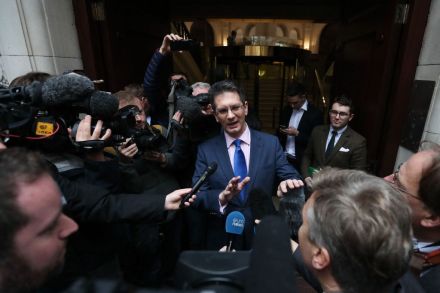Wes Streeting takes on the doctors
The public won’t forgive and nor will I, said Health Secretary Wes Streeting of plans by junior doctors to strike over his refusal to cave to demands for 29 per cent pay rises. Speaking to the Times he said: ‘There are no grounds for strike action now. Resident doctors have just received the highest pay award across the entire public sector. The Government can’t afford to offer more and it wouldn’t be fair to other NHS workers either, many of whom are paid less’. Is Wes Streeting right? And who’s going to come out on top – the Health Secretary or the junior doctors? Meanwhile, Keir Starmer was very clear at PMQs: stating




















